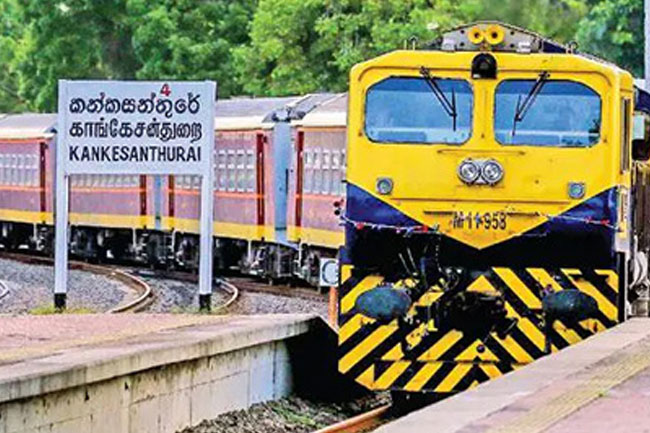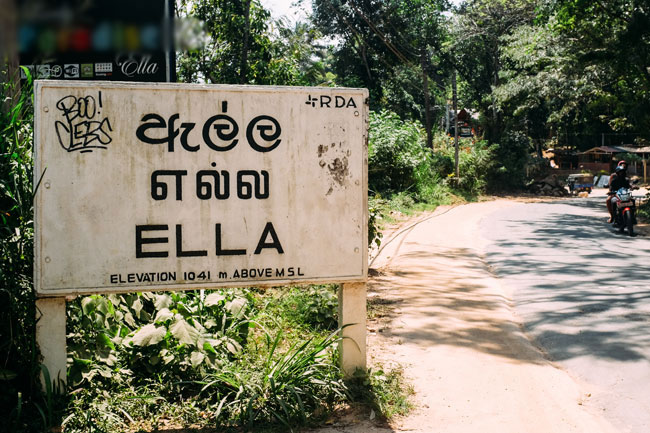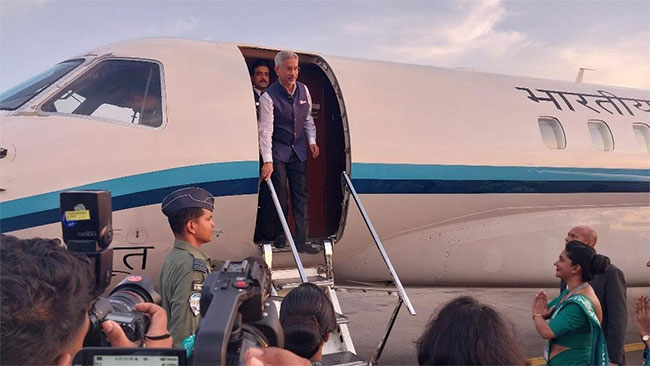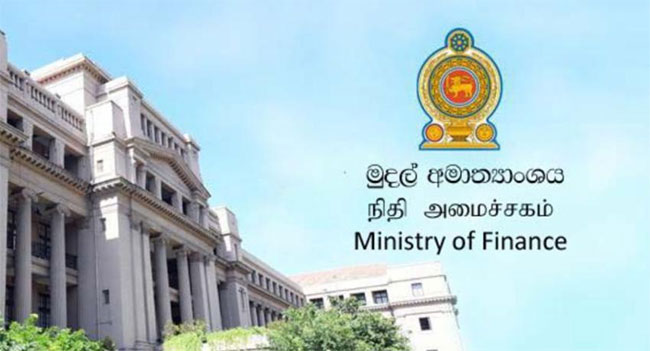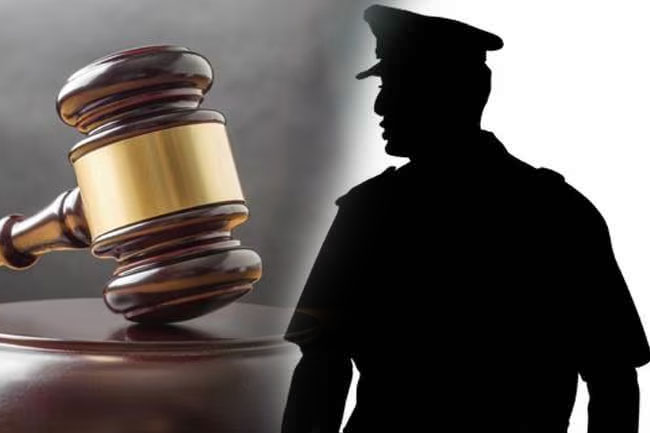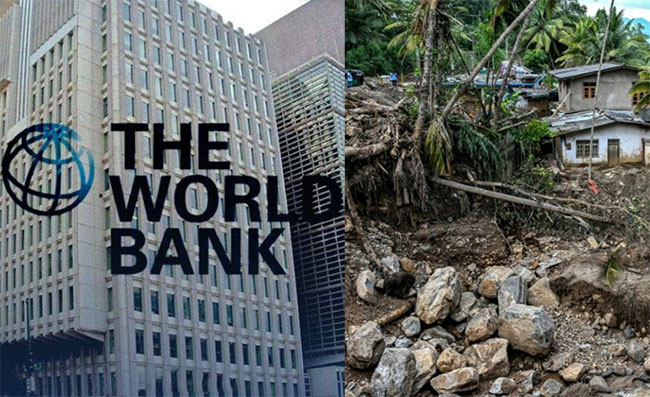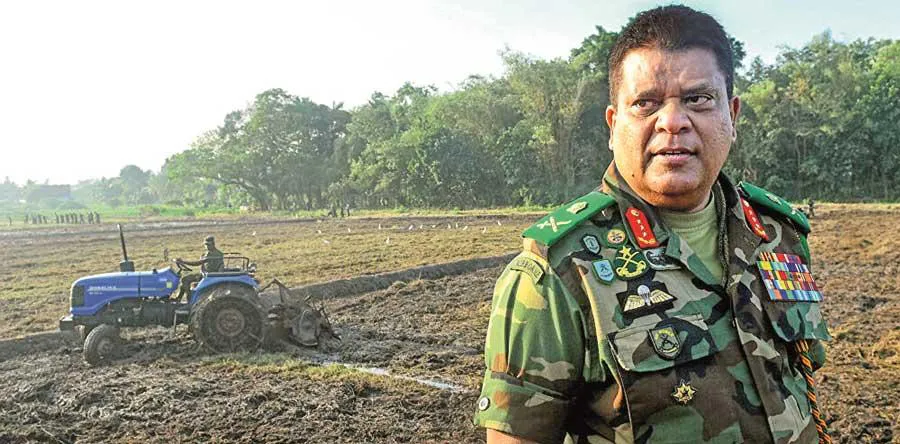
– Country’s intelligence increased to highest level Commander of the Sri Lanka Army Lt. General Shavendra Silva said Sri Lanka’s battle against COVID-19 was a success story, which could be shared with the world and post COVID-19, the island would have a special place on the global map. With airports set to reopen in August, Silva said risks would remain but strict preventive measures would be put in place to keep the society safe from a re-emergence. He further said following the Easter attacks last year, Sri Lanka now had increased its intelligence system to the highest level, and while some extremists were attempting to plan something here, the intelligence were working round the clock. “So we can be proud of them. As long as we have a strong intelligence system we will always know what is happening,” he said in an interview with Daily Mirror.
Following are excerpts: Q COVID-19 seems to be more or less over here in Sri Lanka. According to you, who led the operation, are we at risk of facing any new threats of a second wave, especially since we are going to reopen our airports in August? The COVID-19 outbreak is a public health emergency which is of international concern. The plans, as of now have been discussed was that we are going to re-open on Aug 1 or even before that. When we were hit by COVID-19, we gave certain instructions well in advance as to how things should progress. Therefore, I believe the government would issue instructions once the decisions taken are solid. I am sure that all stakeholders, organisations and establishments who are going to get involved once the airports are opened, will be given the necessary guidelines and instructions. The visitors who are planning to visit the island, have to undergo PCR tests in their respective countries before departing to Sri Lanka. This is to confirm that they are free from any infection. Once they arrive here, they will be tested again at the airport. This is what has been discussed, though the plans are yet to be finalised. Once the PCR test is done at the airport, they will be held in a location until their reports are clear and only then can they will be allowed to enter the country. Though they go out, there will be a monitoring system in place to detect. Therefore, I believe if there is a surveillance system in place, we might have nothing to worry. One must understand why we are opening the airports. This is because the country has to now move forward. We are not the only nation that is opening up, some have already opened. There is a little bit of a risk, but we believe that with the procedures in place, we can minimize the risk factor. I believe the government will take every possible step to ensure this opening will not have any negative impact on our society. The government continues to be very concerned about the situation from the day the first patient was detected in Sri Lanka. The country witnessed that the government took stringent measures to safeguard its people, because the people were its priority. So I am confident that, even after we open, this will continue. COVID-19 is a virus, which we are not aware of its behaviour patterns, even in the future. Because of this, we cannot exactly say that the risks and threats are over. But all Sri Lankans will be protected. There is also other reasons to open the airport is that some segments of our society have lost their livelihoods due to lack of tourists. As an entry point, airport is a must for any country. I think we should wait and see. Q You said measures were taken during the COVID-19 battle, and some of these measures included getting the armed forces involved in this containment process. When this happened, there were concerns raised that it was leading to militarisation in the country. Many believed it was not the armed forces’ job to be deployed in this fight. What would you say on this? I believe we are the protectors of the nation and its people. This is how we look at it. The Sri Lankan armed forces were involved in this dangerous COVID-19 battle, ably supported by the health sector, police and other various stakeholders. But in fact, the commitment shown by the three armed forces personnel was instrumental in the containment and prevention of spreading. I am sure that was why the President had decided to deploy the forces in this. The President himself was a military officer, knew the capacity, capability and discipline that were maintained within the security forces. Our security forces are well geared to face any eventuality with confidence. I do not think we have such a capacity in any other organisation in this country. Whether it is extremism, natural disaster or the most recent COVID-19 outbreak, we have done the job that has been assigned to us. Most importantly, what I believe is that a pandemic situation warrants rapid action. There cannot be delays. Military should have the capacity and resource to counter or react within the least possible time. Our armed forces were involved in the fight against the pandemic in full swing from day one. Within 72 hours, even without being aware of what a quarantine centre was and how it should be run. Without any knowledge whatsoever, we managed to build and maintain quarantine centres. While some questions about militarisation are being raised, I believe the people of this country have already accepted the decision of the President and the Prime Minister for having given the opportunity to the military to handle this job. The choice of the military for the confinement was justified as we continued to build, develop, renovate and to function more than 75 quarantine centres. If not for us, you tell me which organisation in Sri Lanka that could have had the number of quarantine centres running for more than three months now? Now things are under control, but still we are operating them. Today, a number of people who are being repatriated, which organisation has the capacity to pick them from the airport, transport and treat them in the centres? If you find there could be positive cases among them, we have to isolate them and take them to the hospital. Also imagine the number of hospitals we have renovated and put up! Had the health ministry given it to an external contractor, they would have never been able meet that challenge. I can keep on justifying the correct decision made in deploying the military. Q As the Chief of Defence Staff, what is your feeling about how the public reacted when a number of navy personnel became infected with the virus? I am referring to the negative public reaction... The public reaction was genuine as anyone gets alarmed irrespective of who had become infected with COVID-19, whether they belonged to the military or they were civilians. It is not going to make a difference. This is a matter of concern. So as you said, initially people would have panicked, expressed concerns. Fortunately, we have people with great courage in this nation. To my knowledge, no one came out in public or openly expressed concerns. Our people were wise to understand as to why the forces personnel had been infected. There was a reason for it. We had this Suduwella incident and we had another area where forces had to go in where the people in those areas were not so disciplined. As the security forces men had to take them out of these places, they had to do more than what they had to do. Also, at the beginning, the health guidelines laid down by the World Health Organisation were different. Initially face masks were not made mandatory. After several weeks only, they were recommended. So the forces followed all guidelines as and when they were released, but they were focused on getting these people out for the benefit of the others. Now you would know the Welisara Navy camp accommodates about 4000 sailors. This is a huge number. We had to adopt a system called the ‘root ball’ system. A similar system was adopted even in a house which had one COVID-19 patient. This include taking all members in the house, even if one person had been tested positive, and taking all of them to quarantine centres. We adopted this system in the villages as well. Because, this was the best thing to do when there were many people living in a small area. When it come to public reaction, we did not see much of a big negative reaction by the people. They were very calm and I am sure they had the confidence of what we had said. When the first patient from the Navy was identified, within 24 hours all the tri-forces personnel had been brought to the camps. We call it living-in. No one was allowed to go out of the camps other than for urgent duty. The President’s intention was to ensure that this Navy cluster should not affect the society. So the President, as Commander in Chief, wanted all troops to be brought in. That was the right decision that prevented a spread in society. Having many troopers in one camp led to a number of Navy men getting infected. We have to understand that being in a camp, there is only a limited number that can stay in. It was tough to maintain social distancing within the camp. As the result, there was a spread among the sailors. But we are always proud that we contained the spread and we did not allow it to have a negative impact on our society. Also we did not hide the number of infections here. We are proud of our integrity. Q Talking of numbers, there were some concerns raised as to whether Sri Lanka was hiding the numbers initially? One thing is that, there was nothing to hide, because we were not a failed state in tackling the pandemic. We are a successful. So there was no reason to hide the fact. Also we cannot hide them because the media is very vigilant. The media will unearth the truth in no time. But there were some people who could not digest Sri Lanka’s success and how we controlled the situation. So those were the ones who would have spoken negatively about our success. Q You headed the National Operation Centre for the Prevention of COVID-19 outbreak and were part of the Task Force. Do you think the decisions were taken at the right time? The President was very far sighted to establish the Task Force, well before the first patient was identified in Sri Lanka. He established this Task Force on January 26. Then in March, he took significant measures to prevent the spread. The curfew was imposed on time, airports were closed at the right time then the National Operation Centre for the Prevention of COVID-19 outbreak was established under me and the operation centre did a lot of work with some imminent people. We ensured the minimum number of deaths. Then, through the decisions taken by the Task Force, social distancing was implemented in the country and also there were travel bans on affected countries. Work from home rule was introduced. Private, public partnerships were brought in to distribute emergency supplies in all households. The military was used for bringing the senior citizens to collect their pensions. That was the visionary leadership of the President and Prime Minister, and we are proud those decisions taken at the correct time.
Through the National Operation Centre for the Prevention of COVID-19, they planned certain strategies to take forward the coordination and collaboration of the roles of the armed forces, health services, airport and other stakeholders.
Hospitals were also developed. Some people questioned as we would have sufficient ICU beds in the country. But the President, Prime Minister and Task Force went on a strategy. It was because of that strategy, we knew exactly whether we would run short of beds. We also had a rapid and early detection of active cases and a comprehensive rapid contact-tracing mechanism. The President, Prime Minister and government also did not focus only on health matters. They focused on how to distribute food, how to get the salaries, how people should work online, smooth banking process etc. Therefore, we have a success story to share. I have been telling from March that we would get a prominent rank in the world map, and would earn an even better ranking at the end of this COVID-19 spell. I believe it will happen, because of the way we handled the situation.
Also during the lockdown, the people came out with several innovative discoveries. Now, some countries have started buying from us, since we have started manufacturing a lot of stuff which we were importing earlier. These discoveries would help us in the long run that we should be able to export them. COVID-19 was brought under control by our people. They always listened to what we said. I myself appeared in the media along with others such as Dr. Anil Jasinghe, spoke because we were given the authority. So people started listening and believing in what we said. We did not try to conceal the numbers. People had faith in us. Hats off to our people and a great appreciation should go to the media as well. Q Let’s shift our focus now on to the security situation, especially after the Easter Attacks last year. Soon after the blasts, the people were really disappointed that a huge dent was caused to the national security network. We were warned of the attacks, but it was ignored. You, are now leading the army, tell us how safe we are now? As far as the Easter attacks are concerned, the matter is under investigation by the Presidential Commission of Inquiry. So we should avoid talking about it. About your question as to how safe the country is now, well, the country is safe. We can guarantee that. Of course some elements like LTTE supporters, we have to be watchful. The LTTE was wiped out and defeated in the country entirely. But their supporters and sympathisers are active and raising funds overseas. They want to continue with this while domiciling in those countries. So these people want to see that some oxygen is given to the LTTE. They could take place outside the country. They are attempting to influence some people in Sri Lanka, but within the past ten years we have managed to thwart this. We have taken all precautions. The President discusses with the Security Council every week on the situation. But we do not foresee any LTTE threat as such. But a different kind of extremism may try to plan something. But we are very vigilant and our intelligence unit has been increased to the highest level. We have a great intelligence system in the military as well. Our other intelligence agencies are very impressive too. They are all working round the clock, so we can be proud of them. As long as we have a strong intelligence system in the country, we will always know what is happening. Especially, if something is trying to pop up. So, as of now, the country is safe. Q After the Easter attacks, is information being shared with other intelligence agencies in the region? This has to be, because no intelligence could operate alone. We are an island nation, so we cannot be a frog in the well. We have to know what is happening around the world, the new trends, the initiatives and so on. So definitely we have good coordination with the intelligence agencies of other agencies. We cannot live in isolation. Especially when it comes to drug trafficking etc. since it is not produced here. Q You spoke about the LTTE threat. Is that why we still have a large number of military personnel deployed in the North? Why are we not seeing any reduction there? There has been a reduction in fact. After 2009, we shifted a lot of troops down to the South. For example, like in Hambantota, before 2009, we did not see a large number of troops. Even in Matale, we did not have a battalion before 2009. Every district now has battalions which were shifted from the North after 2009. After I became the Commander of the Army, in my very first speech I said that I was going to improve the intelligence as it was according to the intelligence information, the military would be deployed in other areas. So we have downsized a fair number of troops from 2009 to now from the north. But we do have many camps in those areas, which were established before 2009. Therefore, we do have a number of troops in the north but not as much as what we had earlier. We know how the military should be deployed. Even the de-mining process is underway in the north. There is also a lot of development activities taking place there. We are constructing roads, houses, renovating tanks etc. So the military is continuing the nation-building process there and they are a big strength to the people of the north. Q What are your plans after retirement? Are you planning to enter politics? My retirement will be decided by the Head of State who is also the Commander-in-Chief. Till then, I will continue to serve the nation as I have always done with utmost dedication. Q So, as of now, no thought of politics... I don’t think I have any idea of entering politics. Because I cannot think of it now. As of now, I am only concentrating on what I can offer for my country, for the army with the experience that I gathered in the past 37 years. While being in the army, we are going beyond the call of duty and are trying to develop this country and bring an atmosphere where people can live in peacefully and harmoniously.
Popular News
